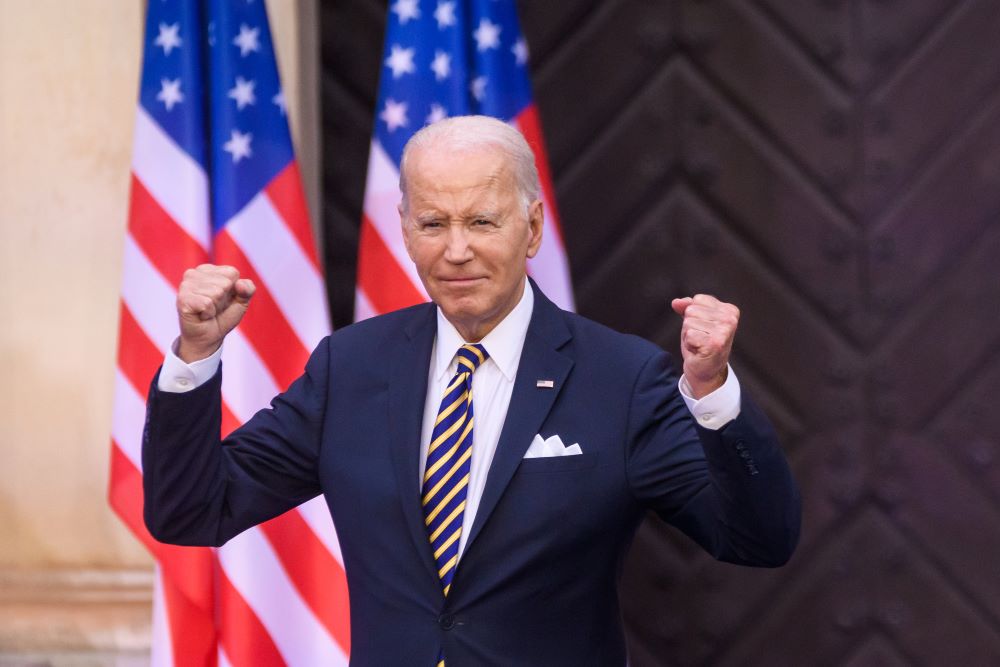President Joe Biden’s announcement to withdraw from the 2024 presidential race has sent shockwaves through the political landscape, leaving the Democratic Party scrambling to find a new standard-bearer just months before the election. This decision marks a dramatic end to Biden’s lengthy political career and sets the stage for an unpredictable and tumultuous campaign season.
A Surprising Announcement
On July 21, 2024, President Biden, at 81 years old, revealed his decision to terminate his bid for re-election. This move came after mounting concerns within his party about his ability to effectively campaign against former President Donald Trump, who remains a formidable contender despite ongoing legal battles. Biden’s exit is unprecedented in modern politics, as no sitting president has stepped down so close to their party’s convention and the general election.
Reasons Behind the Decision
Biden’s decision followed a period of intense scrutiny and declining support within his party. A critical debate performance against Trump in late June raised significant concerns about Biden’s age and capabilities. During the debate, Biden appeared less vigorous and articulate compared to his opponent, exacerbating doubts about his ability to lead another term.
Additionally, a positive Covid-19 diagnosis further complicated his campaign efforts, leading to increased pressure from prominent Democrats to reconsider his candidacy.Despite efforts to rally support and dispel doubts about his mental acuity,
Biden’s struggles persisted. His decision to step down was influenced by a combination of these factors, culminating in a heartfelt message shared on social media. In his statement, Biden expressed gratitude for the opportunity to serve as President and emphasized his commitment to fulfilling his duties until the end of his term.
Endorsement of Kamala Harris
Biden also endorsed Vice President Kamala Harris as the Democratic nominee, praising her as his best decision and urging the party to unite behind her to defeat Trump. Harris, the first female vice president and a woman of color, now faces the daunting task of consolidating support and establishing herself as a credible national leader in a condensed timeframe. Her candidacy is seen as a continuation of Biden’s legacy, but she will need to navigate the complexities of a campaign that has suddenly shifted gears.
Implications for the Democratic Party
Biden’s withdrawal has left the Democratic Party in a state of uncertainty and urgency. With the party’s convention just weeks away, Democrats must quickly rally behind a new candidate who can energize the voter base and mount a successful challenge against Trump.
Potential contenders, including Michigan Governor Gretchen Whitmer, California Governor Gavin Newsom, and Transportation Secretary Pete Buttigieg, may also emerge as viable options.The process of replacing Biden on the ballots poses significant legal and logistical challenges. The Democratic Party must navigate these hurdles while ensuring a seamless transition to a new nominee. This situation mirrors the historical precedent set by President Lyndon B. Johnson’s decision not to seek re-election in 1968, albeit under different circumstances.
Potential Successors
Several prominent Democrats are now being considered as potential successors to Biden. Vice President Kamala Harris is the most likely candidate, given her current position and Biden’s endorsement. However, other figures such as Governors Gretchen Whitmer and Gavin Newsom, and Secretary Pete Buttigieg, are also in the spotlight.
- Kamala Harris: As the sitting Vice President, Harris has the advantage of national recognition and experience on the presidential ticket. However, her approval ratings have been mixed, and she will need to quickly build momentum to secure the nomination and lead a successful campaign.
- Gretchen Whitmer: The Governor of Michigan has gained national prominence for her handling of the COVID-19 pandemic and her strong re-election campaign in 2022. Whitmer’s leadership skills and ability to connect with voters make her a strong contender.
- Gavin Newsom: The Governor of California has been a vocal supporter of Biden and has a robust political network. Newsom’s progressive policies and dynamic leadership style could appeal to a broad spectrum of Democratic voters.
- Pete Buttigieg: The Secretary of Transportation and former presidential candidate has a strong grassroots following and is known for his articulate communication skills. Buttigieg’s youth and fresh perspective could invigorate the Democratic base.
A Chaotic and Unpredictable Race
The 2024 presidential race has already been marked by dramatic events, including Trump’s legal battles and Biden’s struggles. Trump’s resilience and ability to capitalize on favorable court rulings have contrasted sharply with Biden’s challenges, contributing to an unpredictable electoral environment. With Biden’s exit, the race has become even more volatile, setting the stage for a raucous and unpredictable campaign season.
Conclusion
President Joe Biden’s decision to drop out of the 2024 presidential race has reshaped the political landscape and introduced a new level of uncertainty into the upcoming election. As the Democratic Party navigates this unexpected turn of events, the focus now shifts to selecting a new candidate who can unite the party and present a formidable challenge to Donald Trump. The road ahead is fraught with challenges, but it also presents opportunities for a revitalized campaign and improved electoral prospects.
Biden’s remarkable political career, spanning over five decades, has come to an unexpected end. His decision to step down underscores the dynamic and often unpredictable nature of American politics. As the Democratic Party moves forward, the selection of a new nominee will be crucial in shaping the future of the party and the nation.
The upcoming months will be critical as Democrats work to rally behind a new leader and prepare for one of the most consequential elections in recent history. This expanded article provides a comprehensive overview of President Joe Biden’s decision to drop out of the 2024 presidential race, its implications for the Democratic Party, and the potential candidates who could replace him. The narrative captures the urgency and uncertainty surrounding this unprecedented political development.
